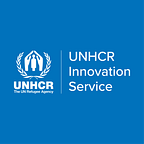COMPASS — why our new planning system will make a bigger difference in the lives of people forced to flee
The UN Refugee Agency embarks on a new results based management journey.
By Ritu Shroff, Director of the Division of Strategic Planning and Results (DSPR)
For Tiana Anaya, my colleague working on the border between Colombia and Venezuela, no two days are the same. When I visited the border town of Cucuta a couple of years back, she and her colleagues were working tirelessly to offer protection to the steady stream of Venezuelans that cross into Colombia. As I stood on the Colombian side of the Simon Bolivar bridge watching thousands cross over, I learned about the “caminantes”, those who traverse over a thousand miles by foot through the Andean mountains, fleeing conflict and extreme deprivation, and arriving in other parts of Colombia, Ecuador, Peru and Chile, in search of safety and a better life. Colleagues in Cucuta spoke about the challenges of assisting and supporting people walking such long and hard journeys, highlighting how quickly and creatively they have adapted their activities and directed UNHCR’s resources to help those on the move.
Over the years, Tiana has worked with many different communities of forcibly displaced people. As a result, she has developed a profound understanding of the drivers of forced displacement and the importance of context-appropriate responses. She says she has developed this understanding by listening closely to affected communities — describing refugees, internally displaced and stateless people as her teachers. She says, “I look back and see a thousand faces of people who have inspired me to work for them.”
While Tiana usually starts with discussions with affected people, she quickly broadens her conversations to local authorities and local partners. She and community leaders meet with national authorities and policy makers to explain the situation faced by those who are forcibly displaced and the appropriate measures needed. As they plan together for the future, Tiana and her colleagues in Bogota focus on investing in making a lasting change for the communities she supports.
Our new planning, budgeting and monitoring system, called COMPASS, has come into being as UNHCR turned 70. For seven decades, our former systems were designed to work on an annual cycle basis. For colleagues like Tiana, who spend years working with displaced communities in an ecosystem with others, our systems were woefully inadequate. Our planning and reporting systems offered little space to define and describe longer-term actions that resulted in more profound systemic changes for affected people, especially when those changes occurred in collaboration with others.
Our new approach invests in our conviction that a longer-term perspective on solutions should be integral in our planning — and that this this is key to becoming more effective and impactful. Tiana’s colleague in Jordan, Aisha Bino, came up with the name COMPASS for this new system — saying that it was an apt name for an approach that helped us guide and orient our efforts toward achieving positive impact in the lives of people we serve. COMPASS recognises that we can be most effective when we deliver lifesaving assistance, while simultaneously envisaging better futures for forcibly displaced and stateless people.
The Global Compact on Refugees gave us the confidence to transform our planning to recognise that when we pull together with others, we multiply our chances of achieving positive change. COMPASS is cementing the theory into UNHCR’s ways of working. Our DNA remains the same — to protect people forced to flee. COMPASS embraces the fact that no UN agency acts alone — rather it is most powerful when it works with the people it serves, partners, host communities and host governments. We will coalesce with others to focus collectively on the outcomes or positive difference that we wish to realise.
By emphasizing the use of evidence in decision-making about what to do and how to do it — such as data on who is most vulnerable, on differentiated needs and aspirations of a rich diversity of people, which activities are most effective or those that are the most cost-effective — COMPASS also increases the likelihood that we will select the best actions to achieve those goals. The COMPASS platform will therefore enable staff and partners to direct money where it is most needed and to monitor expenditure and actual results over time. And this is what results-based management actually means in practice — it is the process of inquiring about whether changes that were intended have occurred and where shifts or course corrections need to be made to achieve those. Ultimately, COMPASS is a process that is a catalyst for creating change; it will support the allocation of resources more effectively, with a clear impact in mind.
Our new approach embraces the fact that change, real change, takes time, and in January 2020, Tiana and her team welcomed it into their lives. Because they know better than anyone else that supporting Venezuelans displaced abroad requires UNHCR to simultaneously focus on immediate response as well as partner on longer-term solutions. So must our planning systems support both types of efforts.
As I write, twenty-four operations are transitioning from annual planning to multi-year planning, a sea change for UNHCR. The introduction of COMPASS means our operations can meaningfully engage with national planning and the sustainable development goals. And ultimately, that is how we will be able to make a more meaningful difference with our resources for those we serve — refugees, internally displaced, returnees and stateless persons.
